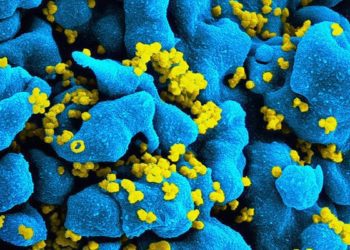Complicated cases of severe dengue rarely occur in infected travelers
1. In the retrospective chart review, complicated dengue was rare in travelers who were infected.
2. Severe symptoms noted in complicated dengue included liver disease, myocarditis, and neurologic dysfunction.
Evidence Rating Level: 1 (Excellent)
Study Rundown: About 50 to 100 million cases of symptomatic dengue virus infection are reported annually. However, classifying the severity of dengue can be challenging. Currently, the 2009 World Health Organization dengue classification is used, distinguishing dengue with warning signs and severe dengue. Severe dengue is defined as dengue with any of the following: severe plasma leakage leading to shock or respiratory distress, severe hemorrhage as determined by the clinician, or organ failure. However, there is a gap in knowledge as to understanding the epidemiology, clinical manifestations, and outcomes of a large cohort of international travelers with severe dengue and dengue with warning signs. Overall, this study found that complicated dengue is relatively rare in travelers with dengue, though travel medicine clinicians should closely monitor travelers with dengue to monitor possible progression to severe disease. This study was limited by not having data available for all variables on all patients, as well as having limited generalizability and being retrospective. Nevertheless, these study’s findings are significant, as they demonstrate that complicated dengue is relatively rare in travelers with dengue, though the application of the grading of dengue disease may be helpful in the management of dengue patients in nonendemic areas.
Click to read the study in AIM
Relevant Reading: Mitigating Prenatal Zika Virus Infection in the Americas
In-Depth [retrospective cohort study]: This retrospective chart review using the GeoSentinel surveillance system was conducted across 71 clinical sites in 29 countries. Patients who had complicated dengue at GeoSentinel sites from January 2007 through July 2022 were eligible for the study. Patients who did not fit this diagnostic criteria were excluded from the study. The primary outcome measured was defined by GeoSentinel as complicated dengue confirmed or probably dengue with evidence of severe dengue, defined as compatible clinical illness and appropriate exposure history with either DENV isolation, a positive DENV-specific result on reverse transcriptase polymerase chain reaction, positive nonstructural protein 1 antigen detection, and/or seroconversion (defined as a four-fold increase in IgG anti-DENV antibody titers). Outcomes in the primary analysis were assessed via descriptive analysis. Based on the primary analysis, of the 5,958 patients with dengue, 2% had complicated dengue (95 patients). Patients who acquired dengue were most likely to be from the Caribbean or Southeast Asia, and reasons for travel included tourism, visiting friends, or visiting relatives. Common laboratory findings and signs were thrombocytopenia (78%), elevated aminotransferase (62%), bleeding (52%), and plasma leakage (20%). Among severe cases, ophthalmologic pathology (n=3), severe liver disease (n=3), myocarditis (n=2), and neurologic symptoms (n = 2) were reported. In summary, this study demonstrates that complicated dengue is relatively rare in travelers, though clinicians should carefully monitor patients with confirmed dengue in case of progression to severe disease.
Image: PD
©2023 2 Minute Medicine, Inc. All rights reserved. No works may be reproduced without expressed written consent from 2 Minute Medicine, Inc. Inquire about licensing here. No article should be construed as medical advice and is not intended as such by the authors or by 2 Minute Medicine, Inc.







